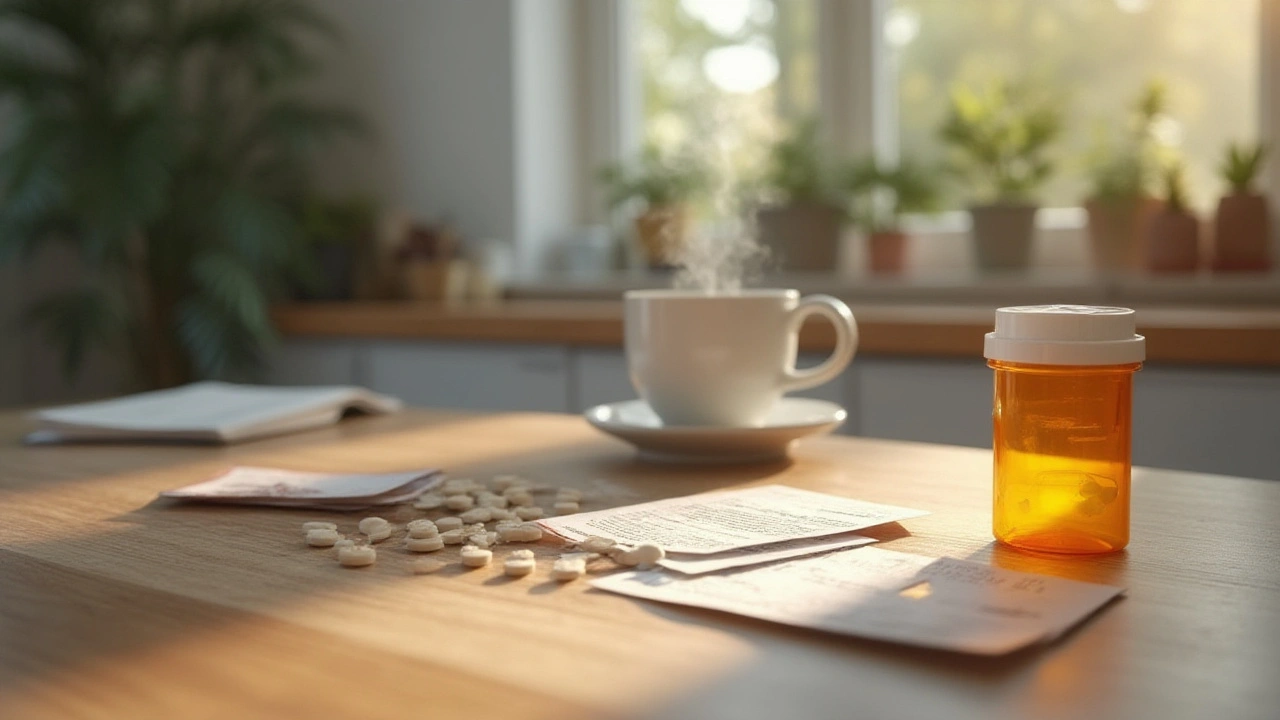Caffeine: What You Really Need to Know
Caffeine is part of most people's lives—morning coffee, energy drinks, even chocolate. It's everywhere, but there’s still a lot of confusion about what it actually does. Ever wondered why your energy spikes and crashes? Or why some folks can drink coffee at midnight and sleep just fine, while others feel jittery after a single cup?
This stuff works fast. Most people feel the boost within 20 minutes of sipping their first cup. Caffeine blocks adenosine, the chemical making you sleepy, so you stay alert. But that's not the end of the story. It can also speed up your heart rate and sometimes make you anxious—especially if you overdo it.
Not everyone reacts the same way. Some people have a genetic knack for processing caffeine super quick, while others struggle to clear it from their system. That’s why your friend may gulp down three lattes and act normal, but you feel wired after one.
Thinking about ditching caffeine? It's trickier than it sounds. Quitting suddenly can mean headaches, crankiness, and feeling like you’ve just woken up on the wrong side of the bed for days. Dialing back slowly usually works better. Swap one cup of coffee for tea or decaf, then keep going at your own pace.
Don’t believe every headline. Studies show low to moderate caffeine use (about 200 to 400 mg a day, or roughly 2–3 cups of coffee) is safe for most adults. It can boost mental focus, help you exercise a bit longer, and may even protect against some diseases. But if you’re pregnant, dealing with heart issues, or have trouble sleeping, it pays to talk to your doctor about your specific limits.
Parents: watch out for hidden caffeine in sodas, chocolate, and bottled teas. Kids can feel the effects much more than adults, so keep an eye on those sneaky sources.
Struggling to cut back? Try some smart swaps. Decaf coffee, herbal teas, or water with a squeeze of lemon can keep your routine rolling without the buzz. If you’re lean on sleep, remember: caffeine only masks tiredness, it never actually fixes lack of rest.
Want to use caffeine wisely? Pay attention to timing—late afternoon caffeine can wreck your sleep. Stick to the morning or early afternoon if you have trouble nodding off. And keep track of your total intake, not just coffee—energy drinks and cold remedies sometimes pack a surprising punch.
Bottom line: caffeine isn’t evil, but it’s not magic either. Get to know how it works for your body, be honest about what you need, and make choices that fit your real life—not just what trends on social media.
How Medications Interact with Caffeine: Side Effects & What You Need to Know
Mixing caffeine with medications can get complicated. This article breaks down how caffeine changes drug effects, reveals surprising interactions, and gives practical tips.
Keanu Rutherford | Jul, 10 2025 Read More
